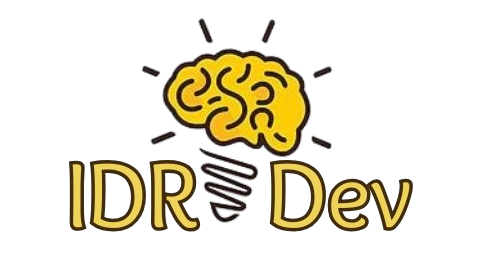Level Up Your GitHub Profile: Find Awesome Open Source Projects to Contribute To
Stepping into the world of open source can be daunting, but the rewards are immense. Contributing to open-source projects on GitHub isn’t just about writing code; it’s about collaborating, learning, and building a strong professional network. It’s a powerful way to showcase your abilities to potential employers and build a respected reputation within the developer community. This comprehensive guide will walk you through the process, highlighting valuable projects, effective strategies, and common challenges.
From finding the perfect project to navigating the contribution process, we’ll provide actionable steps and practical advice to help you make a meaningful impact. You’ll discover how contributing to open source directly translates to building a stronger, more visible GitHub profile, attracting potential collaborators, and ultimately furthering your career in technology.
Prepare to unlock the potential of open source and transform your GitHub profile into a compelling showcase of your skills and dedication.
Background: Understanding Open Source and GitHub

Open-source software (OSS) is software with source code that anyone can inspect, modify, and enhance. GitHub serves as the central hub for many open-source projects, facilitating collaboration through version control (Git) and providing a platform for developers to share code, track issues, and manage projects. Contributing to these projects is a valuable experience for developers of all levels.
Finding Your Niche
The sheer number of projects on GitHub can feel overwhelming. Start by focusing on your interests and skills. Are you passionate about web development, machine learning, or data science? Identify projects related to your area of expertise to make your contribution more impactful and enjoyable.
The Importance of Contributing to Open Source

Contributing to open-source projects offers numerous benefits, extending far beyond simply adding lines of code. It’s a chance to learn from experienced developers, improve your skills, build your portfolio, and connect with a global community.
Skill Enhancement & Portfolio Building
Contributing to OSS projects allows you to work on real-world problems, using and learning new technologies in a practical setting. This practical experience significantly strengthens your resume and builds a demonstrable portfolio of your coding abilities.
Benefits of Open Source Contributions

The advantages of contributing to open-source projects are multifold. Beyond skill development, it offers opportunities for networking, career advancement, and giving back to the community.
Networking and Community Building
Open-source projects often involve collaboration with developers from around the globe. Contributing to these projects provides valuable networking opportunities, allowing you to build relationships with other developers, learn from their expertise, and potentially find mentors or collaborators.
Career Advancement
A strong GitHub profile showcasing meaningful contributions to well-known open-source projects can significantly improve your job prospects. Employers often view contributions as a testament to your skills, dedication, and collaborative spirit.
Steps to Contributing to Open Source Projects on GitHub

Contributing to open-source projects involves several key steps, from identifying suitable projects to submitting your contributions.
Finding a Suitable Project
Start by browsing GitHub’s trending repositories or searching for projects related to your interests and skillset. Look for projects with a beginner-friendly label or those actively seeking contributions.
Understanding the Project’s Workflow
Before contributing, familiarize yourself with the project’s guidelines, coding style, and contribution process, typically documented in a README file. Understanding these guidelines helps you submit a high-quality contribution that aligns with the project’s standards.
Forking and Cloning the Repository
Fork the project to create your own copy on GitHub. Then, clone your forked repository to your local machine using Git. This allows you to work on the code locally without directly affecting the original repository.
Making Your Changes
Create a new branch for your changes. This isolates your work and allows for easier merging later. Make your modifications, ensuring they adhere to the project’s guidelines. Test your code thoroughly before submitting.
Submitting a Pull Request
Once you’ve completed your changes, commit them to your branch and push your branch to your forked repository on GitHub. Create a pull request (PR) to propose your changes to the original project’s maintainers. Clearly describe your changes and address any potential issues.
Addressing Feedback
The project maintainers may provide feedback on your pull request. Be responsive to their feedback, make any necessary revisions, and continue the process until your changes are accepted and merged into the project.
Examples of Popular Open Source Projects on GitHub

Several popular open-source projects offer excellent opportunities for contribution. These examples represent diverse areas of software development.
Project Example 1: OpenStreetMap
Contribute to mapping data, improving map accuracy, and adding new features to this collaborative map of the world.
Project Example 2: React
If you’re into web development, consider contributing to the React library, fixing bugs or enhancing its functionalities.
Project Example 3: TensorFlow
For those interested in machine learning, contributing to TensorFlow, a popular machine learning library, can offer valuable experience.
Strategies for Effective Contribution

Contributing effectively involves more than just writing code; it’s about understanding community norms, engaging with maintainers, and demonstrating a commitment to the project’s success.
Start Small, Aim Big
Begin with smaller, less complex tasks. This allows you to gain experience and build confidence before tackling more challenging issues.
Communicate Clearly
Always communicate clearly and professionally with project maintainers. Explain your contributions thoroughly and be responsive to feedback.
Follow the Project’s Guidelines
Adhere to the project’s coding style, documentation standards, and contribution process. This demonstrates respect for the project’s maintainers and fosters a positive collaborative environment.
Challenges and Solutions
Contributing to open-source projects may present challenges. Understanding and addressing these challenges proactively will increase your chances of success.
Dealing with Rejection
Not all contributions are immediately accepted. Learn to handle rejection constructively. Analyze the feedback, make improvements, and resubmit.
Navigating Complex Codebases
Large and complex projects can be daunting. Focus on smaller, well-defined tasks, and use the project’s documentation to guide you.
Time Management
Contributing to open source requires dedication and time management. Set realistic goals and integrate contributions into your schedule.
Frequently Asked Questions (FAQ)
- Do I need to be an expert programmer to contribute?
- No, many open-source projects welcome contributions from all skill levels. Start with smaller, well-defined tasks.
- How much time should I dedicate to contributing?
- It depends on your availability and the project’s scope. Even small contributions can make a significant difference.
- What if my pull request is rejected?
- Don’t be discouraged! Analyze the feedback, make improvements, and resubmit your pull request.
- How do I find projects that are beginner-friendly?
- Look for projects with labels like “good first issue” or “beginner-friendly” in their repositories.
- What are the benefits of contributing beyond my resume?
- You gain valuable experience, learn from others, and build relationships with the wider developer community.
Conclusion: Embrace the Power of Open Source
Contributing to open-source projects on GitHub is a powerful way to enhance your skills, build a strong portfolio, and connect with the developer community. By following the steps outlined in this guide and embracing the collaborative spirit of open source, you can transform your GitHub profile and advance your career in technology. Start exploring projects today and begin your journey towards becoming a valuable contributor to the open-source world!
Start your open-source journey now! Find a project that sparks your interest and begin contributing.

